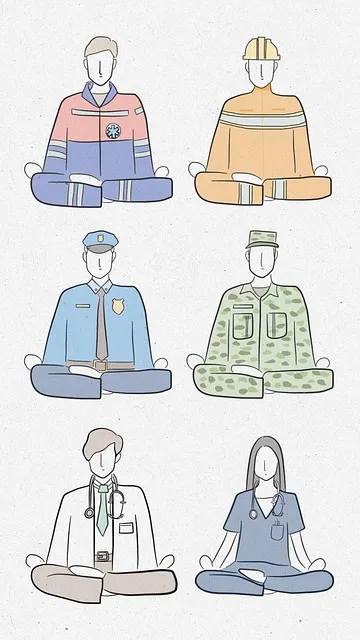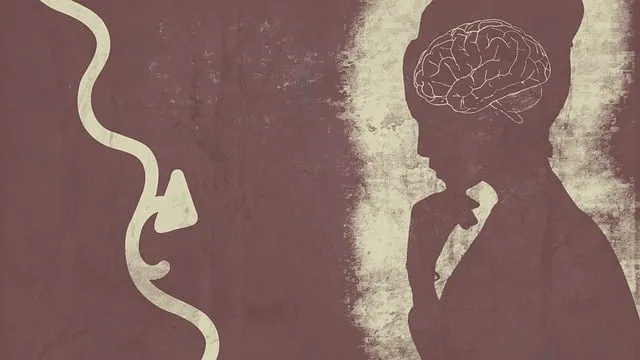Mental illness stigma, stemming from misunderstandings and discrimination, hinders access to opportunities and services for marginalized communities. Lone Tree Kaiser Permanente addresses this through comprehensive mental health coverage, including specialized trauma support and holistic approaches that destigmatize seeking help. Educational initiatives, community engagement programs, and employee burnout prevention emphasize empathy, myth-busting, early intervention, and crisis intervention skills. Sharing recovery stories inspires hope and promotes mental health awareness, fostering an inclusive society where individuals with mental illness can seek support without judgment.
Mental illness stigma remains a significant barrier to treatment and recovery. This article explores targeted efforts to reduce stigma, focusing on understanding its root causes and impact. We delve into the crucial role healthcare providers play in these initiatives, highlighting Lone Tree Kaiser Permanente’s innovative approach to mental health coverage. Additionally, we examine educational programs fostering community engagement and celebrate inspiring stories of individuals overcoming stigma. By addressing these strategies, we aim to promote a more compassionate and supportive society for those facing mental health challenges.
- Understanding Mental Illness Stigma: Causes and Impact
- The Role of Healthcare Providers in Stigma Reduction
- Lone Tree Kaiser Permanente's Approach to Mental Health Coverage
- Educational Initiatives for Community Engagement
- Celebrating Recovery: Stories of Overcoming Stigma
Understanding Mental Illness Stigma: Causes and Impact

Stigma surrounding mental illness is a complex issue with deep-rooted causes. It often arises from a lack of understanding and misperceptions about mental health conditions, leading to discrimination and marginalization. This stigma can manifest in various ways, from social exclusion and ostracism to limited access to opportunities and resources. Many individuals struggle to seek help due to the fear of being judged or stigmatized, impacting their overall well-being. The consequences are far-reaching; it can hinder one’s ability to maintain employment, foster healthy relationships, and pursue educational goals, ultimately affecting their life trajectory.
At its core, mental illness stigma prevents people from openly discussing their struggles, seeking professional support, and receiving the necessary treatment. This is particularly concerning for marginalized communities who may face additional barriers due to systemic issues such as limited access to quality mental health services, including those offered by Lone Tree Kaiser Permanente. Efforts to reduce stigma must address these underlying causes through education, advocacy, and policy changes that promote mental health awareness, encourage self-esteem improvement, and foster resilience-building initiatives in diverse communities.
The Role of Healthcare Providers in Stigma Reduction

Healthcare providers play a pivotal role in mental illness stigma reduction efforts. They have the unique opportunity to interact with individuals seeking support for their mental health concerns, often serving as the first point of contact for many. By fostering an environment of understanding and empathy, healthcare providers can significantly contribute to breaking down the barriers associated with mental illness. At Lone Tree Kaiser Permanente, for instance, mental health coverage is designed to encourage access to specialized services, including Trauma Support Services, which are crucial in addressing complex psychological needs.
Through education, active listening, and non-judgmental attitudes, healthcare professionals can help dispel myths and misconceptions surrounding mental illnesses. This, in turn, boosts the confidence of those struggling, encouraging them to openly discuss their experiences and seek necessary aid. By integrating mental illness stigma reduction efforts into routine care practices, providers send a powerful message of acceptance and support, ultimately fostering a more inclusive and understanding community for individuals dealing with various mental health challenges.
Lone Tree Kaiser Permanente's Approach to Mental Health Coverage

Lone Tree Kaiser Permanente has taken a significant step forward in addressing mental health concerns by implementing a comprehensive approach to mental health coverage. They recognize that mental wellness is an integral part of overall health, and their policies reflect this understanding. By prioritizing mental health services, the organization aims to reduce the stigma associated with seeking treatment and encourage open conversations about emotional well-being.
This initiative focuses on Depression Prevention as a key strategy, offering accessible resources and support systems for employees. They promote Emotional Well-being Promotion Techniques through various programs and workshops, ensuring individuals feel empowered to manage their mental health effectively. The hospital’s commitment to destigmatizing mental illness sets a positive example, inspiring others in the healthcare industry to adopt similar inclusive practices.
Educational Initiatives for Community Engagement

Educational initiatives play a pivotal role in Lone Tree Kaiser Permanente’s mental health coverage efforts to reduce stigma. By fostering community engagement through workshops and awareness campaigns, they aim to cultivate empathy and understanding among residents. These programs often include interactive sessions on recognizing signs of mental illness, dispelling myths, and promoting early intervention.
Integrating empathy building strategies into these educational initiatives helps bridge the gap between individuals with mental health challenges and their communities. Moreover, burnout prevention techniques for healthcare professionals are crucial components, ensuring they can provide sustained, compassionate care. Additionally, offering accessible crisis intervention guidance equips both citizens and support staff with life-saving skills, fostering a supportive environment where mental well-being is prioritized.
Celebrating Recovery: Stories of Overcoming Stigma

In the journey towards reducing mental illness stigma, sharing stories of recovery is a powerful tool. Celebrating these victories can humanize mental health struggles and inspire hope among individuals facing similar challenges. Lone Tree Kaiser Permanente’s commitment to mental health coverage plays a significant role in this narrative by providing accessible resources for treatment and support. Many have found solace through therapy, medication, and community outreach programs, leading to improved self-esteem and mood management.
These stories serve as a reminder that recovery is achievable and that mental illness is not a defining aspect of one’s identity. By sharing experiences openly, we foster Mental Health Awareness and create an environment where individuals feel empowered to seek help without fear of judgment. This collective effort contributes to breaking down the barriers associated with mental health discussions, ultimately leading to a more compassionate and supportive society.
Mental illness stigma is a complex issue, but through understanding its causes and impact, we can make significant strides towards reduction. Healthcare providers play a crucial role in this process, and organizations like Lone Tree Kaiser Permanente are leading the way with comprehensive mental health coverage initiatives. By combining these efforts with educational programs that engage communities, we can foster an environment of support and celebration for recovery stories. This multi-faceted approach ensures that those facing mental illness receive the help they need without fear of stigma, ultimately improving overall well-being in our society.






